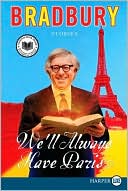Disparate Thoughts on Ballard, the Nature of Memory, a Fisher-Queen, and Fantasy Generally
His was among the strange New Worlds fiction that I encountered as an unsuspecting kid in my brother’s sf collection, higgledy-piggledy among the Clarke, Asimov, and Simak. I didn’t know what to make of it then, but it’s been sitting in my backbrain all these years, still messing with the contents.
======
Strangely, one of my grad school professors was, like Ballard, born and raised in Shanghai, and like him was also interned as a boy by the Japanese during World War II. He said, of both the book and movie versions of Empire of the Sun, “It was nothing like that.” I wish now I had taken notes; he gave a number of specific examples. But it shows that memoir (and memory), like fiction, are the product of an intensely personal process. This is the construction of meaning through narrative.
In searching academic literature on memory recently, I came across a review article on “Trauma and Memory” (Van der Kolk, Bessel A. (1998), Psychiatry and Clinical Neurosciences 52:S97-S109). The author compares the recollection of traumatic events with ordinary memories from both a clinical and a neuroscience perspective. Combat veterans and other sufferers of PTSD do not experience recollection of the most traumatic events as memory, but as fragments of direct, unprocessed sensory input. During traumatic experiences, the sense-impressions received by the brain bypass the parts, like the hippocampus, that would organize them into a coherent form of consciousness, and so memories do not form as in ordinary experience. This “organizing” is the creation of a narrative out of the fragments and at the same time, creation of meaning which the fragments lacked. At the clinical level, processing traumatic memory was the stitching together of a story of the experience….. a process which most of us, most of the time, do so effortlessly we hardly notice.
No wonder being told stories, in fiction, in movies, in art, has such a huge effect on how we think and feel. Narrative is how we think and feel. …

 The Easter Bunny is a savage and unforgiving beast. This I always knew. I watched in dismay last week as he refused my daughter’s reasonable request for somehing practical and useful: the unyielding edict of the Bunny is that he brings only what is useless and frivolous. And chocolate, sometimes.
The Easter Bunny is a savage and unforgiving beast. This I always knew. I watched in dismay last week as he refused my daughter’s reasonable request for somehing practical and useful: the unyielding edict of the Bunny is that he brings only what is useless and frivolous. And chocolate, sometimes.
 As
As 